Thursday, March 13, 2008
Tracking Down an Obscure Reference
An example of a "day in the life of" - yours truly, lol!
Maybe it's the way I was raised; maybe it's my law school training. I learned how to research in the days before personal computers! I'd spend hours digging through stacks of dusty books trying to find a hint of a precedent or, more usually, some teensy bit of dicta to use upon which to hang an argument. All I know is, when I'm on the trail of something, I have a bulldog determination to pursue it to the very end. Now, this can at times cause problems :) But on the whole, my stubborness has served me well.
In the last few days a question showed up in my email related to the early medieval period of chess in Europe. There was an author cited and a book he wrote that contained a legend concerning the invention of chess by a philosopher called either Xerxes or Philometer. The researcher was attempting to track down the author and the book: John de Vigney and "[The] Moralization of Chess," which is accounted the earliest book to reference the specific Xerxes/Philometer legend about the invention of chess.
I haven't had much time of late to devote to research, I've barely had time to respond to my emails and I've been staying up way past my bedtime to post a few items here; well, we all have these "crunch" periods in our lives. But this particular "question" intrigued me. I vaguely recalled reading something years ago about "Xerxes" inventing chess - at the time I thought it was a reference to the great Persian King! So, I thought I'd see what I could track down earlier tonight.
I pulled out my trusty old H.J.R. Murray "A History of Chess." Mind you, I think Murray is full of baloney as far as his interpretations of the evidence but as a resource for meticulously researched citations, he is the Gold Standard. And, sure enough, in his practically non-existent Index, was listed "Philometer."
I won't go into all the gory details of plodding through Murray's tedious writing. Suffice to say that I discovered in Murray that Jacobus de Cessolis, in his famous (infamous) "Sermon", made specific reference to the legend of chess being invented by the philosopher Xerxes. de Cessolis' work is dated to the latter part of the 13th century CE. Could de Cessolis be the mysterious John de Vigney? It didn't seem so - as "of Cessolis" did not show any resemblance to "of Vigney" to me. But, knowing the vagaries of translation and how language changes over time, I was keeping an open mind.
But - what did seem obvious was that "The Moralization of Chess" was a rather bad translation of another title - I guessed - from Latin. The "Sermon" (actually a lengthy four-part book) that de Cessolis wrote was titled "Liber de moribus hominum et offciis nobilium" and as far as I could decipher in my non-existent Latin translation skills, none of that related in any way to anything about "chess" (something like "scaccum" in Latin).
However, the information about de Cessolis and "Xerxes" and the invention of chess was contained in Chapter V of Murray, entitled "The Moralities." That seemed fertile ground within which to dig a little further, since the title of the book I was looking for had something to do with "morality" or "moralization" and "chess."
Sure enough, after skimming through a few more pages of Murray, I came across the name of John of Waleys.
Hmmmm, I thought - John de Vigney - John of Waleys? I read that John of Waleys is also known as Johannes Gallensis, and he wrote a book entitled "Quaedam moralitas de scacciario" (which I roughtly translated from the Latin as something to do with "The Morality (or Morals) of Chess."
That sounded suspiciously like "The Moralization of Chess" to me. John of Waleys' book is dated to around 1260 CE, which would date it probably earlier than de Cessolis' "Sermon" and, therefore, could have been available to de Cessolis as a reference to the Xerxes/Philometer legend.
My intincts tell me I've found John de Vigney and his "The Moralization of Chess." He was actually John of Waleys (a/k/a Johannes Gallensis) and the book's title is something like "The Morality (or Morals) of Chess."
Ahhh, an evening's worth of research ends in a pay off. Wish that was always the case!
Subscribe to:
Post Comments (Atom)

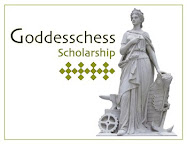
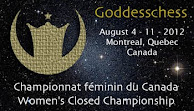


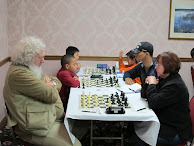

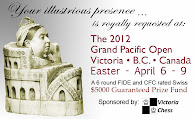

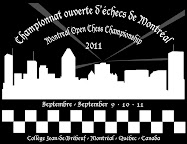










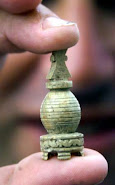














1 comment:
Actually this is around the wrong way; de Vignay translated the original by de Cessolis from Latin to French (the full title of the Latin work is "Liber de moribus hominum et officiis nobilium ac popularium sive super ludo *scachorum*"). This was then translated into English by Caxton as "Game and Playe of the Chess".
Post a Comment